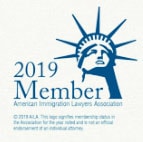As widely expected by staffing analysts and immigration law firms in San Diego and throughout the United States, the number of applications received for foreign workers under the H-1B visa program quickly reached the cap imposed by Congress. Even the cap on the number of special H-1B visas granted to foreign workers with advanced degrees was surpassed during the first week of applications. As a result, employers and applicants must wait on an electronic lottery system to learn who will be granted permission to work in the U.S.
The H-1B visa program is very popular among employees in the United States who seek highly-skilled foreign workers in the science, technology, engineering, and mathematics (STEM) fields. The limits on the number of visas granted each year are dictated by legislative resolutions, which are based on a number of political and socioeconomic factors.
In recent years, the H-1B program has been augmented by offering separate caps on visas granted to workers with advanced degrees. A certain preference has also been given to foreign workers who graduate from U.S. colleges and universities. In fact, many immigration analysts believe that it is easier to transition F-1 visas issued to foreign STEM students into H-1B visas after they graduate from American schools.
The number of H-1B visa applications that will be randomly selected by a computer is 65,000 for regular petitions and 20,000 for those with advanced degrees. These visa holders will be allowed to work in the U.S. during fiscal year 2015. In the meantime, a lobby of powerful tech firms such as Google and IBM are working to influence proposals to double existing caps.
Employers who do not get to hire foreign employees in 2015 due to having no luck at the lottery will be refunded the application fee. These employers are encouraged to contact H-1B attorneys in San Diego to look into alternatives to the H-1B program. At this time, hiring foreign students who are expected to get advanced STEM degrees in the U.S. is one such option, but there may also be other alternatives such as sponsoring Canadian and Mexican employees under the Treaty NAFTA (TN) non-immigrant visa program.
Click here for more information about the NAFTA or contact Kazmi & Sakata Immigration Law at 858-874-0711 to speak with a professional lawyer and schedule a free consultation.




